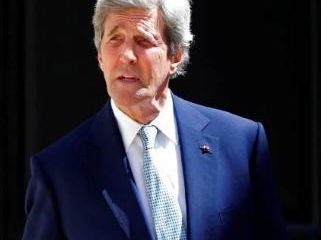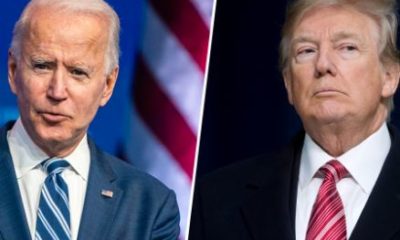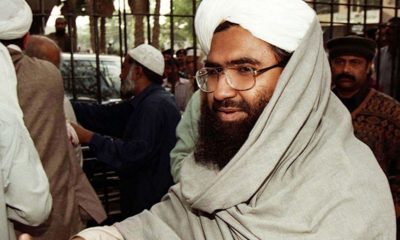World
UN Security Council reform effort gets broad backing; China, Pakistan oppose move

United Nations: The top diplomat heading the efforts for Security Council reforms has unveiled a framework document to pave the way for text-based negotiations amid broad support for his effort to spur the long-stalled process and vehement opposition from China and Pakistan.
Jamaica’s Permanent Representative Ambassador Courtenay Rattray, who is the chair of the Intergovernmental Negotiations (IGN) on Security Council Reform, presented the framework document at a closed informal meeting of the General Assembly Thursday and asked member nations to share their views on it so he can produce a negotiating text based on their inputs.
According to sources familiar with Thursday’s proceedings, a broad spectrum of nations as diverse as Security Council permanent members Britain and France and the 42-member pro-reform group known as L69 said they would go along with the process leading to text-based negotiations. The United States also supported the text-based process while opposing a timeline.
Welcoming Rattray’s initiative, India’s Permanent Representative Asoke Kumar Mukerji, told the meeting, “For many developing countries, it is simply untenable that out of 137 developing country members of the United Nations, only one has so far been accommodated as a permanent member of the Council.”
He added, “We need to urgently broaden the Council to make it more representative, more effective and more democratic, reflecting the diversity of our United Nations.”
India, which is heavily invested in the reform process, is widely regarded as a front-runner for a permanent seat on an expanded Security Council. Along with Brazil, Germany and Japan, India constitutes the group G4, whose members mutually support each other’s candidacy for permanent Security Council seats and lobby for reform.
A negotiating text is basic to conducting discussions on Security Council reforms but in a bizarre diplomatic drama the very task of producing one has been held hostage for over a decade by nations opposing the trend towards Security Council expansion. They claim that there has to be a consensus before a negotiating text can be drawn up, even though in practical terms there can’t be discussions to reach a consensus without a document setting out what is being negotiated.
General Assembly President Sam Kutesa and Rattray, whom he appointed as the chair of the IGN, have been trying to break this impasse. Kutesa called on all the member states to support Rattray’s efforts and move towards text-based negotiations.
Besides L69, Rattray received the backing of the 52-member Small Island Developing States group that includes Singapore and the 15-member Caribbean Community, CARICOM.
China led the charge against Rattray’s push for text-based negotiations. The sources said that China’s Permanent Representative Liu Jieyi expressed strong opposition to the effort to move the negotiations forward with a negotiating text and said that Beijing had reservations against the IGN chair.
China was backed by Pakistan and Italy, which are members of the 13-member Uniting for Consensus (UfC) group. They reiterated their position that there should be a consensus first and opposed any timeline for the reform process.
Russia took an ambivalent stance saying it was willing to engage in the move to text-based negotiations although it did not think it was appropriate right now because of the differences among the members.
Mukerji told the meeting that there was nothing controversial about pressing ahead with the reform process because all the world leaders at the 2005 UN 60th anniversary summit had unanimously agreed on early Security Council reform.
Speaking on behalf of G4, Japan’s Permanent Representative Motohide Yoshikawa said the 70th anniversary summit in September would be the occasion to carry out the reform of the Security Council and urged Rattray to keep this occasion in mind as he pushes ahead with the reform process.
India’s candidacy for a permanent seat in the Council is backed by four of the five permanent members, Britain, France, Russia and the United States. China, which has not backed India, softened its position by agreeing in a joint communique with Russia and India in February that it supported New Delhi’s “aspiration to play a greater role in the United Nations.”
When it was founded in 1945 with 51 members, the veto-wielding permanent Security Council seats came as spoils of war to the victors of World War II, Britain, China, France, Russia and the US. There were in addition six elected non-permanent members. In 1965, the number of non-permanent members was raised to 10. There have been no changes even though UN’s membership has risen to 193.
National
Foodman Vishal Singh Honored for Hunger Free World Mission in Bangkok

Lucknow: Vishal Singh, a renowned social worker from Lucknow, also known as Foodman, has once again made India proud. He was honored by the Happy Hands Gloves Cooperative Limited Company in Korathai, Thailand, for his work with the Hunger Free World Mission.
The Hunger Free World Mission’s meeting was held in Korathai, Thailand, under Vishal Singh’s leadership. Representatives from several countries, including Mr. Raja Dwivedi (Managing Director of Happy Hands Gloves Limited), Thailand Coordinator Mr. Raja Mishra, and member Mr. Varun Singh, attended the event.

Under Vishal Singh’s leadership, the attendees took a pledge to work together toward creating a hunger-free world.
Speaking on the occasion, Vishal Singh explained that the main goal of the Hunger Free World Mission is social participation. He said the mission is not just about feeding people but also about meeting other basic needs of those who are struggling. The mission focuses on helping families of terminally ill patients in hospitals by providing food and shelter. It also works to fulfill essential needs like education, jobs, and care for the elderly.
For the last 16 years, the Vijay Sri Foundation has been providing free services, benefiting thousands of people. Vishal Singh highlighted that the mission aims to gain global recognition like other organizations such as WHO, WWF, and Red Cross, which work for social causes.
During this meeting, Vishal Singh was appointed as the Chairman of the Hunger Free World Mission by representatives from various countries. They also discussed holding regular meetings in different countries to push the mission forward.
Business tycoon Dr. Abhishek Verma has also supported this humanitarian mission, vowing to promote the idea of “Seva Parmo Dharma” (Service is the highest duty) worldwide. Vishal Singh praised him, stating that people like Dr .Abhishek Verma inspire others to work for the betterment of society.
Recently, Romania’s Ambassador, Mr . Daniela Sezonov Ţane, invited Vishal Singh to the Romanian Embassy in Delhi, where they discussed the mission in detail. Impressed by his humanitarian work, she honored Vishal Singh and invited him to Romania to take the mission forward .
Food man Vishal Singh has been serving the people of India for the past 16 years. Through the Vijay Sri Foundation, he provides free meals to cancer patients & their families ,shelter, and education for women & children along with running free old-age homes in Lucknow.
In addition to his humanitarian work, Vishal Singh also addresses issues like crime and corruption through his role as Chairman of Seva Path Media and Managing Director of Vijay Sri Foundation.

During the COVID-19 pandemic, Vishal Singh and his team worked tirelessly to provide food and help to the needy, including starving children, elderly citizens, and pregnant women. Despite contracting the virus himself, he continued to assist others after his recovery. He even created a life-saving oxygen regulator using household items, which was praised by doctors both in India and abroad.
In his address at the meeting, Vishal Singh spoke about his mission to create a hunger-free world. He pointed out that India’s large population, along with issues like unemployment and poverty, has caused the country to fall on the Hunger Index. He urged people to contribute just one handful of grains daily to help create a hunger-free world.
He concluded by saying that through social participation, we can empower the people around us, meet their basic needs, and work together to build a stronger, more prosperous, and developed society.























